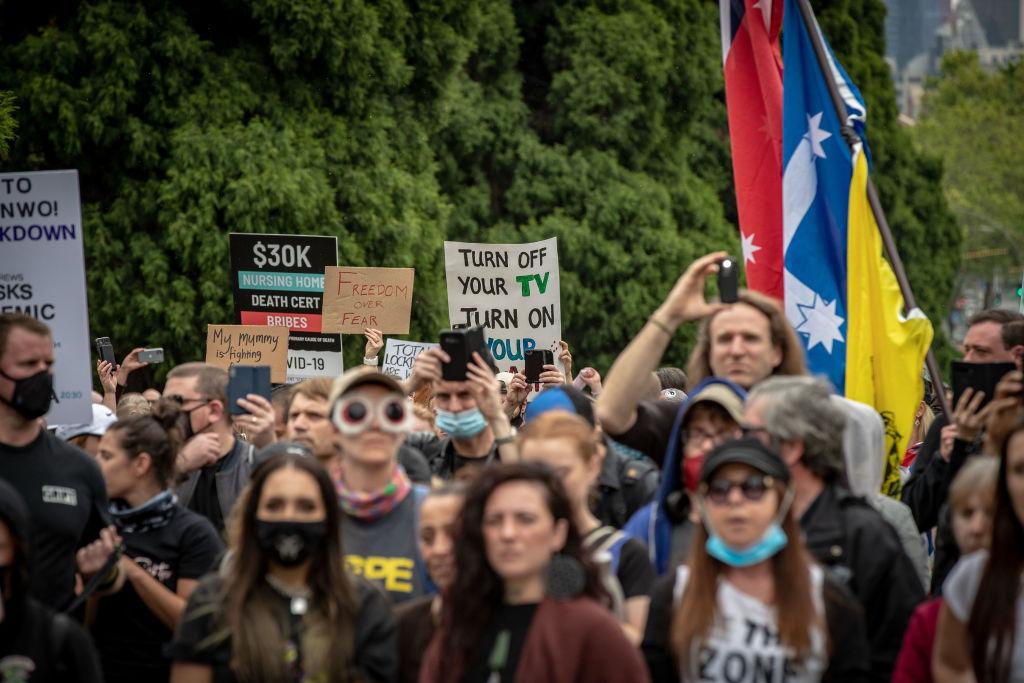Hundreds of protesters have marched into Ballarat, the historic home of Australia’s most famous uprising against a state government, on Sunday in opposition to Victoria’s vaccine mandate and new pandemic laws.
Forming a convoy in Melbourne at 11 a.m., protestors moved through the city and onto the city of Ballarat, which is famous for being the birthplace of Australia’s most well-known rebellion in 1854 at the Eureka stockade.





